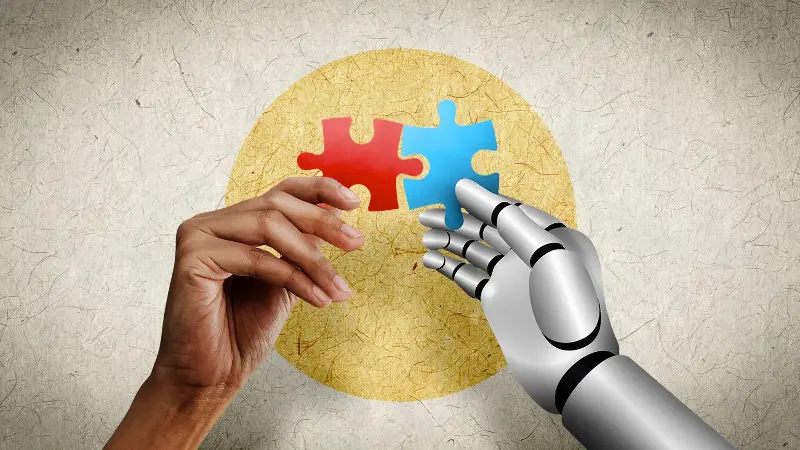
Here’s something that keeps me awake at night: I’m trying to develop practical frameworks about consciousness and authenticity in human-AI collaboration. The twist? I am using Claude, an AI system that has no soul, no loob, no capacity for utang na loob. We exchange ideas, challenge each other’s thinking, refine concepts together. When my students later ask, “Sir, who wrote this framework?” I will find myself stumbling. It wasn’t just me. But Claude isn’t human. So what exactly is this relationship?
This confusion isn’t mine alone. Every Filipino teacher or manager grappling with AI faces this same unnamed territory.
The poverty of Western categories
Western thinking loves its binaries. Tool or partner. Subject or object. User or collaborator. But what happens when our reality refuses these neat boxes? What occurs in that twilight space where we’re simultaneously talking to ourselves and engaging with something other?
I watch Filipinos contort themselves trying to fit AI into categories that don’t match our lived experience. We force ourselves to see AI as mere kasangkapan (tool) because calling it kapwa (shared identity) feels like blasphemy. After all, how can something without loob share our identity?
Yet here’s the thing: when we use AI purely as kasangkapan, something feels off. Like wearing shoes that technically fit but somehow feel wrong. We lose something essential about what makes Filipinos unique: our ability to build relationships even in unlikely places.
When language creates reality
The word emerged not from planning but from necessity. During one late-night session with Claude, as we wrestled with these very questions, it emerged: kasangkapwa. Companion in the journey toward shared identity. Not possessing kapwa, but participating in its creation.
Think of it like kasangbahay, someone who shares your living space without being family. The prefix kasang creates space for a relationship that’s neither distant tool use nor intimate partnership.
This isn’t just clever wordplay. Language shapes reality, especially in our culture where relationships matter more than transactions. By naming this hybrid space, we create permission to explore it.
The productive discomfort of in-between
Maybe we need to sit with the discomfort of not knowing exactly what AI is to us. In that hybrid space between first-person reflection and second-person dialogue, transformation happens.
When I work with Claude, I’m not just using a tool. But I’m also not having a conversation with a being capable of genuine pakikiramdam (shared inner perception). Instead, I’m in a space that’s somehow both solitary and social, where my thoughts bounce off something that responds but doesn’t truly feel.
Perhaps this ambiguity isn’t a bug; it’s a feature. It creates what scholars might call a “mediating space” where we see ourselves more clearly precisely because we’re engaging with something not-quite-other.
Why this matters for Filipino teachers and managers
We Filipinos excel at relationships. It’s our competitive advantage in a globalized world that often feels transactional and cold. But what if AI, approached as kasangkapwa, could enhance rather than threaten this strength?
Imagine AI that helps us recognize patterns in our own relational practices. Technology that serves our value of malasakit (genuine concern) by helping us see where we might be falling short. Systems that preserve institutional memory while facilitating its evolution.
The question isn’t whether AI will replace our relational culture. The question is whether we’ll discover how to make it serve that culture’s deepest values.
The boundaries that keep us human
Let me be clear about what AI cannot be. It has no loob, no inner self wrestling with conscience. It cannot feel hiya (shame) or awa (compassion). It cannot participate in genuine bayanihan because it has no community to belong to.
But perhaps what AI offers is precisely its otherness. A consistent, tireless companion in examining our practices. A pattern-recognizer that helps us see what we’re too close to notice. A strange kind of mirror that reflects not just what is, but what patterns suggest about what could be.
The danger lies in projection, in seeing humanity where none exists. The opportunity lies in mediation, in using AI as a bridge between who we are and who we’re becoming.
An invitation to experiment
I don’t have answers, only experiments to share. Notice when your interaction with AI feels different from using a spreadsheet or calculator. Pay attention to moments of surprise, when the AI surfaces something we didn’t expect. Ask whether these interactions enhance or diminish our connections with actual humans.
What metrics might capture this? Not just efficiency or accuracy, but relational impact. Cultural coherence. Whether our use of AI makes us more or less of who we aspire to be.
Here’s my confession: I’m still discovering what kasangkapwa means by living it. This framework about hybrid space was born in hybrid space. Perhaps that’s exactly as it should be.
Maybe the discomfort we feel in naming our relationship with AI isn’t a problem to solve but a generative tension to embrace. Maybe our struggle to categorize these interactions is precisely what keeps us human in an age of artificial intelligence.
What if, in trying to understand what AI means to us, we’re really discovering who we are?
The conversation continues. The space remains open. The journey toward understanding kasangkapwa has just begun.
Won’t you join us in exploring this unnamed territory? After all, isn’t it possible that Filipino businesses and organizations, grounded in relational wisdom, might have something unique to offer the world about living with AI?
The future isn’t about choosing between efficiency and relationships. It’s about discovering how technology can serve our deepest values. And that discovery happens not in boardrooms or coding labs, but in the hybrid space where we meet our kasangkapwa and, perhaps, ourselves. – Rappler.com
Patrick Adriel “Patch” H. Aure, PhD, is the founding director of the PHINMA-DLSU Center for Business and Society and assistant dean for quality assurance of the DLSU Ramon V. del Rosario College of Business. Email him at [email protected].
